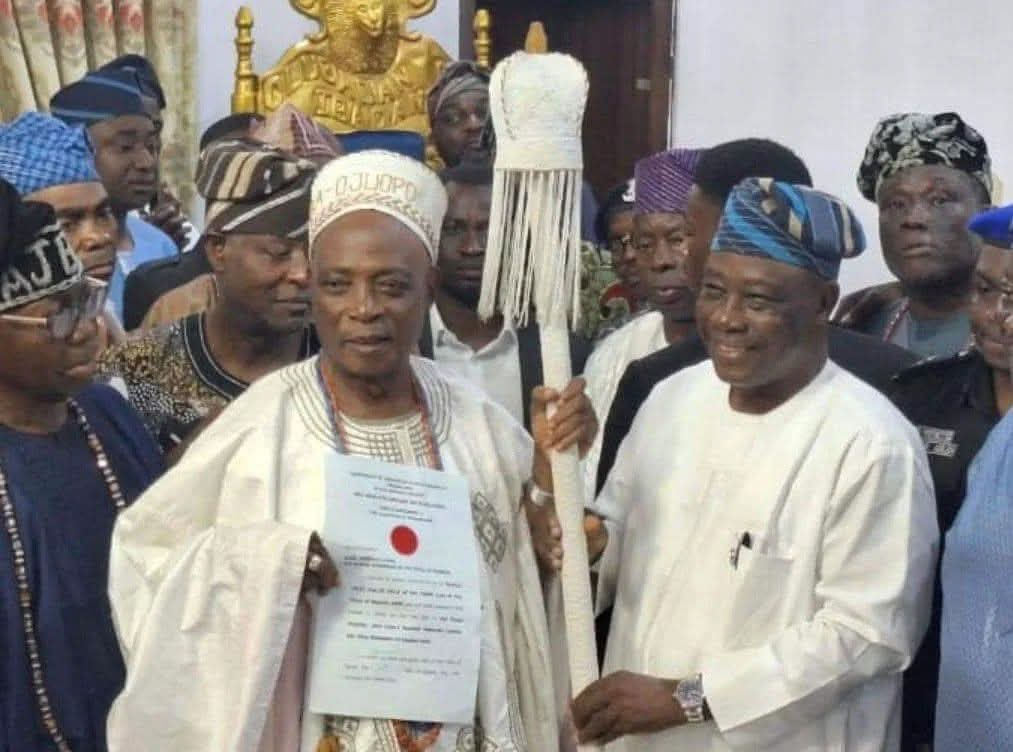
Ibadan, the ancient city of warriors, scholars, and kings, stands at the threshold of history once again. Following the passing of Oba Owolabi Olakulehin, the 43rd Olubadan of Ibadanland, all eyes have turned to High Chief Rasheed Adewolu Ladoja, the Otun Olubadan, who by tradition is next in line to the throne.
With his deep political experience, cultural insight, and royal lineage, Ladoja is poised to become the 44th Olubadan of Ibadanland—a transformation that signifies both continuity and evolution in the leadership of the revered Yoruba kingdom.
On the morning of July 7, 2025, Ibadan was plunged into mourning following the death of Oba Olakulehin at the age of 90. His passing, though anticipated due to age and ill health, marked the end of a chapter in Ibadan’s royal story.
As per Ibadan’s time-honored tradition, succession to the Olubadan throne follows a well-structured rotational chieftaincy system between the Egbe Agba (civil) and Balogun (military) lines. With Oba Olakulehin from the Balogun line, the next in line from the Egbe Agba is Rasheed Ladoja, the Otun Olubadan.
📌 “The rotational system makes Ibadan’s traditional leadership among the most predictable and respected in Africa.” – Cultural Analyst, UI Department of African Studies
Born on September 25, 1944, Rasheed Adewolu Ladoja is no stranger to leadership. A trained engineer and astute businessman, he became a Senator in 1993 and later served as the Governor of Oyo State from 2003 to 2007 under the People’s Democratic Party (PDP). His political journey has been both bold and turbulent—surviving impeachment, court battles, and a reinstatement.
Beyond politics, Ladoja has always held deep ties to his Ibadan roots. In August 2024, he formally accepted the beaded crown as Otun Olubadan, after years of initially declining the offer. That moment set the stage for his current royal ascension.
📎 Read: Legit.ng – Ladoja Is the Incoming Kabiyesi
As one of Nigeria’s most cosmopolitan traditional rulers-in-waiting, Ladoja brings with him a fusion of modern political strategy and deep-rooted cultural reverence. Here’s what analysts say his leadership might deliver:
Unlike many traditional leaders swayed by party lines, Ladoja’s career across multiple parties positions him as a unifying figure.
His business background and tenure as governor suggest a push for Ibadan’s infrastructural revival and cultural tourism.
Despite his political clout, Ladoja has always insisted on respecting Ibadan’s royal customs, a stance that has earned him public trust.
📎 Punch – Ladoja Supports Rotational Leadership Among Oyo Obas
Ibadan’s chieftaincy succession system is considered one of the most peaceful and predictable in Yoruba land. The ascent to the Olubadan throne is not by birthright or political power, but by patiently rising through the 22 civil or 23 military ranks over decades.
This meritocratic approach ensures that the most senior and deserving high chief ascends, regardless of age or wealth.
✅ Did You Know?
Every Olubadan begins his journey decades earlier from the lowest rung of traditional titleholders.
With the transition of power underway, social media and political spaces have flooded with reactions:
📎 Nairaland – Ladoja Set to Succeed Late Olakulehin
The Ibadan kingmakers, led by the Osi Olubadan and other senior chiefs, will soon meet to officially ratify Ladoja’s ascension. After necessary traditional rites, he will be formally crowned the Olubadan of Ibadanland at Mapo Hall, the historic site of coronations in Ibadan.
As Ibadan awaits this momentous ceremony, all eyes remain on the man who has seen it all—politics, exile, redemption, and now, royalty.
Do you think politics and traditional leadership will have a good stay on the same throne?